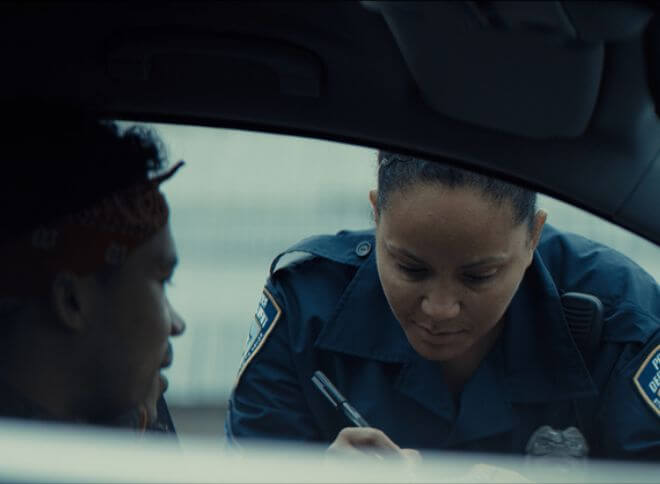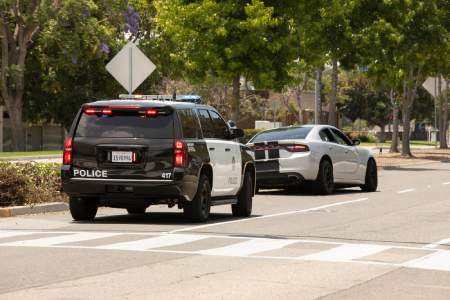It is normal to be concerned when you get pulled over in Florida, and you may get a ticket or even get arrested. It is essential to know that many driving offenses do not amount to criminal traffic offenses in Florida. However, certain offenses can be criminal traffic violations and amount to misdemeanor or felony charges.
Due to the possibility of criminal traffic ticket consequences, it is essential to take traffic ticket offenses seriously and potentially consult with an attorney.
Is a traffic ticket a criminal offense?
The fact that you get issued a ticket by a law enforcement officer does not mean you will face a misdemeanor or felony. So, is a traffic ticket a criminal offense? Not necessarily.
There are many types of traffic tickets that a local sheriff or police officer may issue a driver when no criminal offense has occurred. These traffic offenses are typically considered moving violations, such as running a red light, a stop sign, or basic speeding. When you receive one of these traffic tickets, you would typically have to pay the corresponding fine on time, and any associated points would go on your driving record. Or you can take the online driving school, submit the certificate of completion to the clerk’s office, and pay the citations within 30 days to have the points withheld.
However, some traffic tickets would constitute criminal traffic offenses in Florida, which can have severe consequences for drivers across the state.
Criminal traffic ticket consequences
Similar to other criminal offenses, the penalty range for criminal traffic ticket consequences is variable. It will depend upon the particular crime and any previous criminal history on your record.
Fines that are typically associated with criminal traffic tickets are higher than standard moving violations. The state courts have a wide range of penalties they can give you based on what happened, the associated evidence, and how the case goes in front of the judge. It is not uncommon for a defendant’s attorney to negotiate or plead for leniency to reduce fines.
Other consequences for criminal traffic offenses in Florida include revoking your license and jail time. Reductions of jail time may even be pursued as a strategy in your case.
Did you know that if you are found guilty of a civic or a criminal traffic offense, your insurance costs can go up? Yes. This can cause financial burdens for a very long time. Additionally, if there are repeated offenses on your record, this causes a progression of more stern penalties with each successive criminal traffic offense.
Does a criminal citation go on your record?
This is a common concern, and rightly so. Criminal traffic violations will go on your record. This includes both your driving and criminal records, regardless of whether you have been convicted of a crime before you received the citation. All traffic violations go on your driver’s record whether you are found guilty and pay the ticket or you get the points withheld and pay the ticket.
The officer who issued the criminal citation needs solid proof for you to be convicted. Many times, there is not enough proof to get a guilty verdict. When you have a good attorney, you are much more likely to get the best outcome possible. This can even lead to the charge(s) being dismissed.
Traffic offense examples
As mentioned above, many traffic offenses can lead to a driver getting a citation.
Common questions for types of traffic offenses include:
Is a speeding ticket a criminal offense? Only if it is 30 mph or more over the limit (misdemeanor) or 50 mph or more (felony).
Is reckless driving a criminal offense in Florida? That also depends on the situation.
Florida traffic misdemeanor examples:
- Reckless driving (with property damage)
- Hit and run (with property damage)
- Expired or no valid driver’s license or registration
- Driving under the influence (1st and 2nd offense)
- Speeding 30 mph or more above the posted limit
- Drag racing
- Refusal to submit to testing
- Intentionally driving with a suspended license
- Intentionally refusing or failing to comply with the lawful order or direction of any of the following people: A law enforcement officer, traffic crash investigation officer, traffic infraction enforcement officer, or a member of the fire department at the scene of a rescue operation, fire, or other emergencies.
Florida traffic felony examples:
- Reckless driving (with serious bodily injury)
- Hit and run (with death, serious bodily injury, or injury)
- Driving under the influence (with serious bodily injury or 3rd offense within ten years)
- Vehicular manslaughter
- Leaving a child unsupervised in a vehicle (if it caused great bodily harm, permanent disability, or permanent disfigurement to a child)
- Fleeing from a law enforcement officer
- Driving with a suspended license (3rd offense)
- Speeding 50 mph or more over the posted limit
- Driving while a habitual traffic offender (3rd conviction)
What is a habitual traffic offender?
If a driver becomes a habitual traffic offender, aka HTO, they can face serious consequences. This includes having their license revoked for up to five years.
A driver will be designated an HTO if they commit numerous criminal traffic violations within a five-year period. Another way someone could become an HTO is if they reach a particular number of points on their license under the Florida driving system within five years.
Examples of points include:
- Exceeding the speed limit (3)
- Driving with an open alcoholic beverage (3)
- Reckless Driving (4)
- Running a Red Light (4)
- Leaving the Scene of a Motor Vehicle Accident (6)
Choosing a Criminal Traffic Offenses Attorney
Criminal traffic offenses in Florida are serious charges. Misdemeanor traffic violations can carry heavy penalties, including fines, license suspension, and jail time.
Felony traffic violations are Florida’s most severe type of criminal traffic offense. In addition to a potential prison sentence, felony offenders can face hefty fines, vehicle impoundment, immediate license revocation, ignition interlock, probation, house arrest, and other penalties.
When you are found not guilty, this will eliminate the need for concern about significant consequences.
An attorney can help to minimize the chances of getting a severe penalty for traffic offenses.
Dean G. Tsourakis is a Criminal Defense Attorney in Clearwater, FL, with over 38 years of experience in Criminal Law. Even when things look bleak, it is important to get representation as soon as possible.
Take action today and contact our office to schedule a free consultation. Call 727-785-2700.
on Jan 16, 2023


